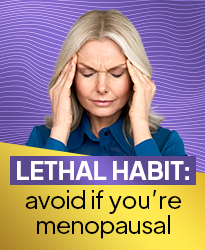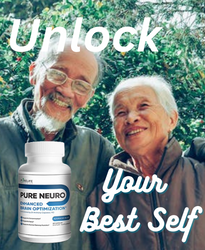Welcome to the fabulous world of hormesis! No, it’s not some Greek hero’s sidekick or a mysterious superfood to add to your morning smoothie. Hormesis is all about adding small amounts of stress to your life in a way that actually strengthens you. That’s right—think of it like weight training for your resilience. Or, if we’re being real, it’s like hugging a cactus to prepare for a rose garden. In essence, hormesis is the scientific art of stressing yourself out (in manageable doses) to unlock a treasure trove of health benefits. So, put on your metaphorical “strength training” cap, because we’re about to dive into how controlled stress can help you live longer, thrive, and maybe even rock that retirement bod.
What Exactly is Hormesis?
In science speak, hormesis is a biological phenomenon where a little bit of what doesn’t kill you actually makes you stronger. It’s the Goldilocks principle of stress. Too much, and you’re in trouble; too little, and there’s no benefit. But just the right amount? That’s where the magic happens. It’s like adding a pinch of salt to chocolate chip cookies—it takes them from “meh” to “get in my mouth now!”
Hormesis is all about low-dose stress with high-dose payoffs. It turns out that small amounts of stress (emphasis on small) can kick your body’s repair systems into high gear. Your cells, in an attempt to survive this mild discomfort, start to perform better, making you healthier and more resilient. So, if you’ve been avoiding all forms of discomfort like the plague, it might be time to lean in—just a bit.
The Upside of Stress (Yes, Really)
When we hear the word “stress,” most of us think of the kind that comes with traffic jams, overflowing inboxes, and tangled holiday lights. But hormetic stress is a different beast. It’s controlled, intentional, and even has a touch of sophistication (think spa day for your cells). Here are some of the surprising ways controlled stress works its magic:
- Cellular Cleanup Crew: When your cells experience low-level stress, they call in the janitorial team, a process called autophagy. Autophagy literally means “self-eating,” which sounds like something straight out of a horror movie, but it’s actually fantastic news for you. Your body starts breaking down damaged cells, getting rid of cellular “junk,” and even recycling materials to build new, fresh cells. Hormesis is essentially Marie Kondo-ing your body at the cellular level.
- Antioxidant Army Activation: Your body is a master at producing antioxidants to fight off cellular damage, but it often needs a little encouragement. Hormetic stress acts as the pep talk your cells need to boost antioxidant production. Think of it as your body’s way of going full Rocky Balboa before a fight. A little stress gets your cells pumped, putting your antioxidants on high alert.
- Longevity Genes: Enter sirtuins and FOXO proteins, the superheroes of the longevity world. These genes love a little controlled stress because it gives them a reason to activate. When they’re in action, they work to improve DNA repair, enhance metabolism, and even help protect against age-related diseases. If your genes had social media, this is the moment they’d be posting gym selfies and tagging #FitLife.
Join Our Mailing List
Register now to get our hints and tips newsletter directly to your inbox
Types of Hormetic Stress (And How to Be a Master of Micro-Dosing)
So, how do we invite hormetic stress into our lives without going overboard? Think of it as setting up a meeting with stress, not handing it the keys to your life. Here are a few controlled stressors that can help you harness the power of hormesis:
1. Intermittent Fasting (Or, “Being Hungry on Purpose”)
Intermittent fasting (IF) is a classic form of hormesis. By skipping a meal here and there (and not, you know, descending into hangry chaos), you gently stress your cells and get them to clean house. When you’re not constantly digesting food, your body shifts into repair mode, activating processes that enhance longevity. And as a bonus, your digestive system gets a much-needed breather. Just try explaining this to your friends when you decline brunch: “I’m stressing my cells to live longer.” (Let’s see if they invite you out again.)
2. Exercise (The Gold Standard of Good Stress)
Exercise is probably the most familiar form of hormesis. You’re literally tearing your muscles so they can rebuild stronger. Regular exercise doesn’t just bulk up your biceps; it triggers all kinds of hormetic responses, from improved heart health to enhanced brain function. So next time you’re sweating it out, just remind yourself that this “good” stress is your secret sauce to staying young and spry.
3. Cold Exposure (Aka “A Polar Bear’s Secret to Longevity”)
It’s no coincidence that people are lining up to jump into freezing lakes or take ice baths. Exposing your body to cold temperatures activates the “shock” factor that hormesis thrives on. Cold exposure spurs your body to produce more mitochondria (the powerhouses of your cells), boosts circulation, and even helps burn fat. Wim Hof (aka “The Iceman”) popularized this, showing the world that a little shiver goes a long way.
4. Heat Exposure (Hello, Saunas!)
On the flip side, heat exposure—like spending time in a sauna—can also trigger hormetic responses. Heat stress increases heart rate, improves blood circulation, and activates heat-shock proteins that protect cells and repair damage. Saunas have long been a beloved ritual in Nordic cultures, and now science shows us why: they’re pretty much a longevity cheat code.
5. Caloric Restriction (But, You Know, Within Reason)
Similar to intermittent fasting, caloric restriction (eating slightly less than you’re used to) can trigger hormesis. Consuming fewer calories sends a signal to your cells to work more efficiently and protect vital resources. It’s kind of like putting your body on “eco-mode.” But be warned—this doesn’t mean starvation or crash diets! Moderation is key. No one wants to end up as a “hangry” hermit in the pursuit of longevity.
The Risks of Too Much Stress: When Hormesis Goes Rogue
While hormesis is a game-changer, too much stress can backfire. Overdoing it can overwhelm your system, leading to burnout, injuries, or even illness. Think of hormesis as a delicate soufflé—too much or too little heat, and the whole thing collapses. Balance is key. Here are some quick tips to keep things in the sweet spot:
- Listen to Your Body: If you’re exhausted, it might not be the time to add extra stress. Let your body recover fully before introducing more.
- Rotate Your Stressors: Mix things up! Don’t fast, cold-shower, and marathon-run all in one day. Rotate these practices to give your body a break.
- Rest and Recover: Hormesis isn’t about constant stress. After a bout of controlled stress, give yourself plenty of time to rest. Your body rebuilds stronger during recovery.
Why Hormesis Just Might Be the Future of Anti-Aging
Hormesis goes beyond the typical anti-aging fads because it doesn’t rely on supplements or extreme diets. Instead, it taps into our body’s natural resilience and adaptability. It’s also cost-effective (hello, free cold showers!), sustainable, and requires no fancy gadgets. Research suggests that harnessing hormesis could delay the onset of age-related diseases, improve cognitive function, and even enhance mental health.
With each dose of controlled stress, you’re helping your body learn to thrive under pressure, laying the foundation for a life that’s not just longer but also healthier and more resilient. Think of hormesis as teaching your body to handle life’s challenges with a bit more grace (and maybe a lot more humor). So, go ahead and take that cold shower, embrace the hunger pangs of a skipped meal, or sweat it out in a sauna. Just remember to laugh at the absurdity of it all—because if life’s going to be a little stressful, we might as well enjoy the ride.
In the end, hormesis is a reminder that sometimes, the things we avoid can become our greatest allies. After all, it’s not every day you get to say, “I’m intentionally stressing myself out—for health reasons!”




